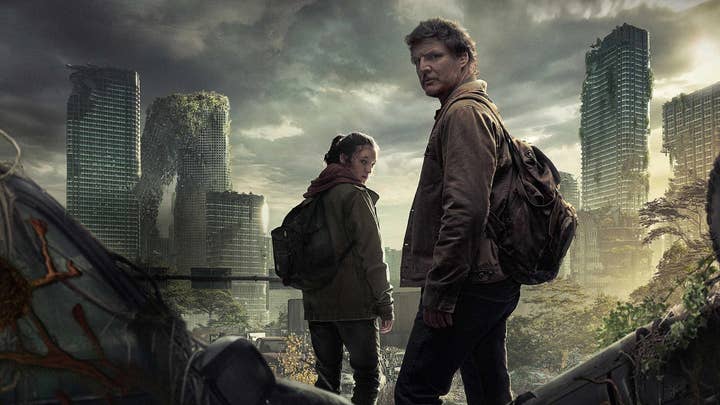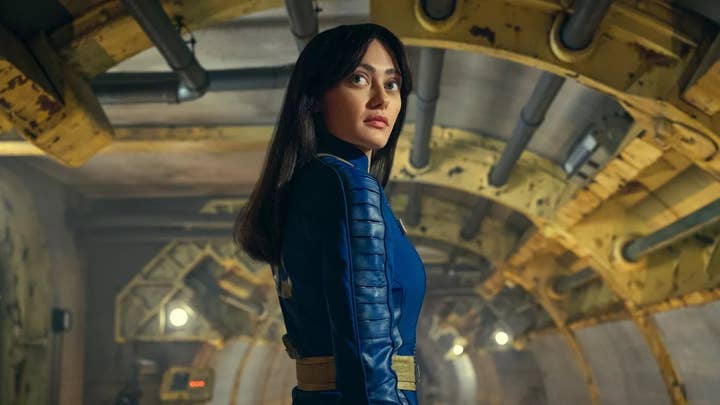Leveraging TV and movie adaptations to benefit game franchises | Opinion
Despite Fallout and other successes, the industry still hasn’t found a strategy to retain new audiences from TV and film
So, there’s a prestige, high-budget TV show based on Fallout, and it’s not only pretty great, it’s also so successful that a second season has already been greenlit. Perhaps the most surprising thing about this is how unsurprising it has become – how little time it took for us all to become blasé about video games properties being adapted into high-quality, well-received TV shows and movies. Go back in time only ten years or so and try to explain that this would happen to anyone in the industry, and they’d think you a hopeless optimist at best.
Yet here we are in 2024 with not only Fallout, but a host of other successful adaptations of game properties fuelling a major boom in companies vying to bring the next big game IP to other screens.
Indeed, as we get caught up in the hype around each major new game-based TV show, it's easy to miss just how consistent this trend has become in a very short space of time. The Last of Us and now Fallout are the standouts, certainly, but there's also an ongoing Halo show, The Witcher is arguably an adaptation of the games as much as the original novel, and there are successful animated shows tying into League of Legends, Cyberpunk, and Castlevania.
On the movie side, Super Mario Bros was one of the biggest box office successes of 2023 and the Sonic movies have developed into a solid franchise, while titles like Uncharted and Five Nights at Freddy’s have been commercial successes even if they didn’t exactly land with critics.
Admittedly, there are also some less successful efforts. Capcom's franchises in particular often seem to be done dirty by the partnerships they strike to develop TV and movies, with the Monster Hunter movie being a dud and Resident Evil, despite being one of the first game franchises to achieve cinema success all the way back in 2002, recently being poorly served by low-quality shows and movies. Sony’s Twisted Metal also didn't exactly light the world on fire last year.
Now that Hollywood is tapping games IP for inspiration, the lost art of putting products into the pipeline that capitalise on those releases needs to be rediscovered
Nonetheless, the appetite for these adaptations is clear, and there are plenty more on the way both to cinemas and to streaming platforms.
Naturally, these adaptations are very good for the franchises which spawn them. They add significant value to the IP, bringing in new audiences (at least some of whom will be encouraged to try the games), and helping to build and sustain interest among existing players. Even so, it's hard to escape the sense that the industry has been blindsided a little by the sudden success of its TV and movie partnerships and is struggling to figure out how to incorporate this new element into its strategic planning.
Consequently, many companies whose games are made into popular TV shows and movies end up leaving money on the table because in most cases, little or no effort has been made to try to capitalise upon fresh interest in the franchise by creating new instalments, updates, or even promotions to tie in with the adaptation. Instead, audiences enthused by what they've just watched would fire up their gaming system only to find that the latest release in the franchise is years out of date, and perhaps not even available for current-generation hardware.

There are exceptions, of course; some companies have done an excellent job of tying their adaptations to the lifecycles of their games and ensuring that the beneficial relationship flows both ways. I've written before about the brilliance, serendipity, or both, of CD Projekt Red ensuring that Cyberpunk's excellent Edgerunners TV show made its streaming debut at around the same time as the major patch that finally made Cyberpunk itself into an excellent game. That’s an unusual case, though, and in general the timelines for developing a TV show and the timelines for the game franchise it's based on seem to be entirely divorced from one another.
Even when there's a currently active game – a live service title, MMORPG, or just a regularly updated franchise – to be tied in with, it's surprisingly uncommon to see any kind of substantial effort made to add content to the game to bridge it with the TV show or movie release.
Of course, developing a new game – or even a current-gen update of an older title, as we just saw with Fallout 4’s long-overdue patch for current-gen consoles – is an incredibly lengthy and expensive process. There's a risk factor to be considered in trying to align the launch of a game with a show; what if the TV show flops, leaving a new title hanging in the wind?
It's also worth reiterating that having successful, well-regarded TV shows and movies based on games is a very new trend. Games IP has routinely been optioned for other mediums for decades; if you did go back in time to 2015 to tell Bethesda about the successful Fallout TV show in 2024, they wouldn’t be surprised that someone had optioned the IP for a show, they would simply be very skeptical about that show turning out well (and would probably also question your priorities in the usage of your new time machine).
Until very recently, TV and movie deals were generally signed with low expectations of an adaptation even getting made, let alone turning out to be a major hit. With game development cycles pushing out into the four-to-five-year span with increasing regularity, the reality is that the entire boom in successful game adaptations has mostly came since the last cycle of pitching and green-lighting games occurred; publishers and developers haven’t really had time to react and figure out a strategy for this phenomenon yet.
Even if the reasons are entirely understandable, though, we should still acknowledge this as something that the industry would do well to work on. For all the positive stories going around about how Fallout 76 – a game fairly widely reviled at launch – is getting a second bite at the apple thanks to the TV show's success, the more hard-nosed take on that situation is that a major new prestige TV show based on a game franchise is creating immense interest, and the best that franchise has to offer its new audience is a six-year-old, poorly reviewed online game. That’s not great, but it’s still far from being the worst-case scenario!
Fallout 76 at least is considered to be in a much better state these days, and has a business model that potentially allows it to monetise the new audience to some extent. A far worse scenario is something like Twisted Metal, whose TV show launched eleven years and two PlayStation generations after the last attempt to reboot the game series. The show didn’t garner much attention – but if it had, Sony would have been in no position to capitalise upon that attention in any way.
Until very recently, TV and movie deals were signed with low expectations of an adaptation even getting made, let alone being a major hit
A runner-up in the disaster stakes is Castlevania, whose popular animated show on Netflix revived interest in the storied franchise several years after Konami had seemingly abandoned it in the wake of the failure of the Castlevania: Lords of Shadow spin-off series.
The irony is that this seemingly unexpected success for game properties in TV and film comes after decades of companies talking about cross-media franchises and the potential for bringing together games, TV, movies and other mediums in a virtuous circle that would benefit all aspects of the property. Now, the single most important component of that cross-media dream – TV shows and movies people actually want to watch – has finally fallen into place, but most companies seem to have been taken by surprise and lacking any strategy to take advantage of this new success.
Given time – and assuming that a slew of rushed adaptations doesn’t slaughter the goose that lays the golden eggs – there’s no doubt that the industry can rise to this challenge and find a way to tie together its game franchises with the new media being based on them.After all, the industry spent decades perfecting the art of developing passable (well, usually passable) games to launch day and date with major movie releases, with the licensed movie tie-in being bread and butter for many studios for a very long time.
Now that Hollywood is dipping into game IP for its inspiration, the lost art of putting products into the pipeline that can capitalise on those releases needs to be rediscovered. This trend probably isn't going away any time soon, as it’s largely demographic in nature – the prime consumers of television are now a generation raised on video games s after all – so the onus is now on the industry to tackle the learning curve and start figuring out how to capitalise on these prestige shows and movies.


-Jussi-Ratilainen.jpg?width=291&height=164&fit=crop&quality=80&format=jpg&auto=webp)






